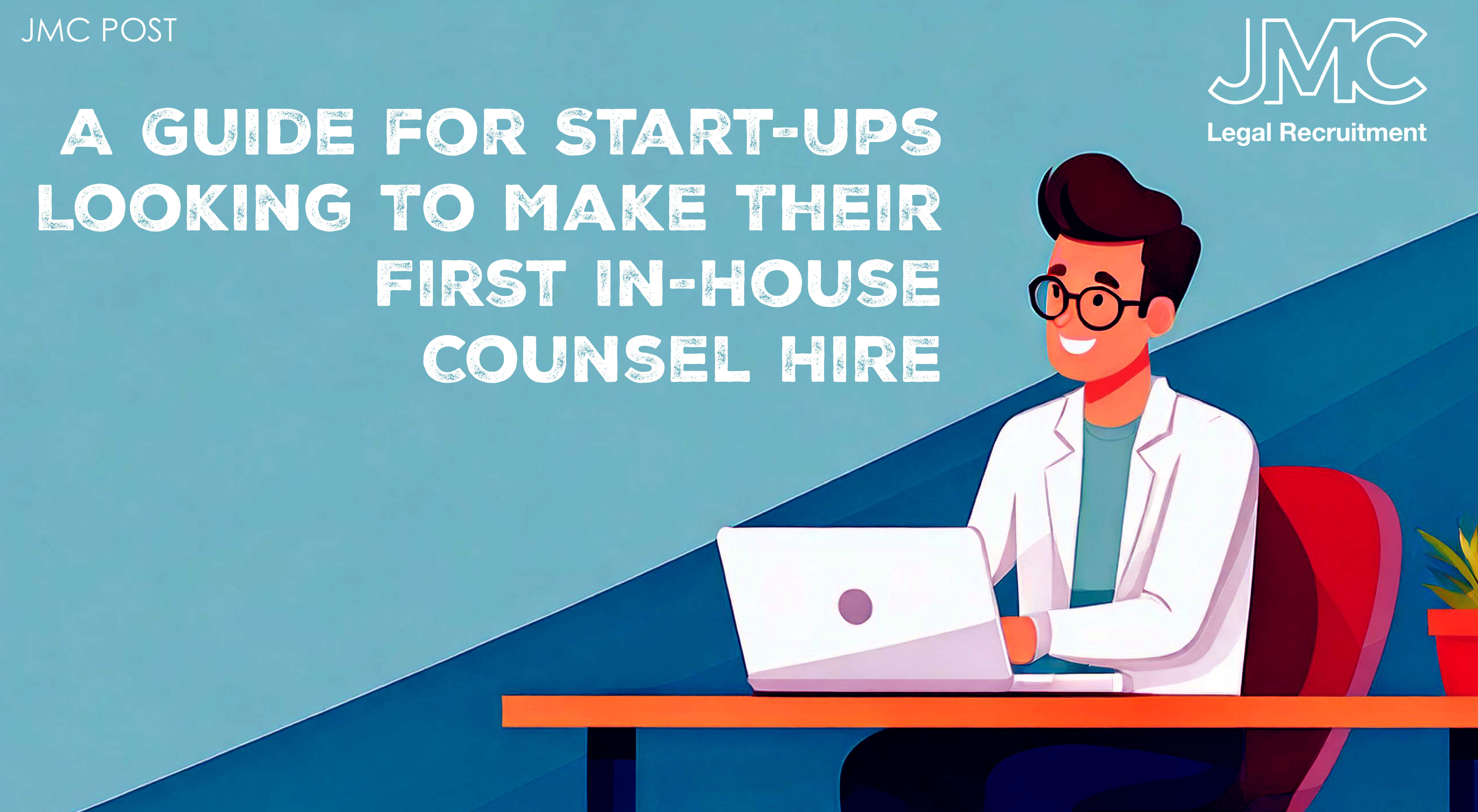
A Guide for Start-Ups Looking to Make Their First In-House Counsel Hire
17 Oct, 20244 minutes
Hiring a startup's first in-house counsel is a significant milestone. It marks the point where the company's legal needs have grown complex enough to require dedicated expertise. But when is the right time to bring in legal counsel, and how should startups approach this decision? Here's a breakdown of the key considerations founders should weigh when hiring their first in-house lawyer:
1. Timing: When Should a Start-up Hire Legal Counsel?
Start-ups typically rely on external legal support in their early stages due to cost constraints. However, as they scale, so do the legal challenges, ranging from contracts to compliance, intellectual property (IP) protection, and regulatory matters.
Growth as a trigger: A key indicator is when legal fees for external counsel begin to match or exceed the cost of a full-time hire. Businesses often make this decision when the legal workload becomes important enough to justify a 40+ hour week, particularly around growth milestones such as fundraising or expansion into new markets.
Strategic influence: Companies experiencing growth may also benefit from embedding legal strategy early on. In-house counsel can integrate legal perspectives across all areas of the business, helping to streamline operations and support sustainable growth as the company scales.
2. Balancing Cost and Expertise: Budgeting for In-House Counsel
Hiring legal counsel is a financial commitment, and start-ups must balance their need for legal expertise with their budget constraints. Founders must decide whether a full-time, part-time, or fractional General Counsel (GC) is needed, and this choice largely depends on the complexity of legal work.
Cost management: Hiring a full-time GC may seem costly for early-stage companies. However, the alternative—continuing to rely on external legal services—can become increasingly expensive as the company grows.
Part-time vs full-time: For businesses with moderate legal needs, hiring a part-time or fractional GC can be a cost-effective solution. This allows companies to access senior legal talent without committing to the full cost of a full-time hire.
3. Generalist vs. Specialist: What Kind of Legal Expertise is Needed?
In-house counsel for start-ups typically need to be generalists, especially in the early stages. The scope of their responsibilities often spans multiple legal disciplines, including corporate governance, IP protection, employment law, and contract management. However, certain industries or stages of growth may call for more specialised expertise.
Generalists as the foundation: Early-stage start-ups benefit from legal counsel who can cover a broad spectrum of legal issues. As the sole legal hire, a generalist is capable of handling various legal challenges, including contract negotiations, IP filings, and risk management. Hiring a generalist can optimise legal processes and contribute significantly to the company’s overall strategic growth trajectory.
Specialists for key stages: In certain situations, such as when a start-up is involved in complex fundraising rounds or entering a heavily regulated market (like FinTech or Healthcare), it may be necessary to hire specialists. However, this is often done after securing a generalist who can manage ongoing legal needs
4. In-House vs. External Counsel: Finding the Right Balance
Deciding when to bring legal services in-house and when to rely on external counsel is critical for start-ups. Initially, many companies choose to outsource legal tasks, but as the business grows, the benefits of having someone who understands the internal workings of the company become clearer.
Cost efficiency: External law firms are often necessary for highly specialised or infrequent legal tasks, such as M&A or patent litigation. However, for daily operational matters—such as contract reviews, regulatory compliance, and IP management—an in-house counsel can be more cost-efficient and provide faster turnaround times.
Internal alignment: An in-house lawyer has the advantage of understanding the company’s business model, culture, and long-term strategy, enabling them to offer proactive legal advice. This is something external counsel, who may not be as deeply embedded in the business, might struggle to provide.
Building a Legal Foundation for Growth
Hiring the first in-house legal counsel is a crucial decision for start-ups as they scale. It’s a balance of timing, cost, and expertise, with a clear understanding of when legal complexities outweigh the reliance on external support. With the right legal counsel in place, start-ups can better navigate the challenges of growth, mitigate risks, and ensure compliance with evolving regulations.
How We Can Help
The challenges outlined above—from deciding when to hire legal counsel to balancing cost with expertise—can seem overwhelming for any start-up founder. But you don’t have to navigate these complexities alone. Consulting with experts in the field can provide you with the insight you need to make informed decisions. Whether it’s determining the right time to hire, choosing between a generalist and specialist, or striking the right balance between in-house and external counsel, having a clear strategy is essential for success.
I’m happy to jump on a call to help with:
- Salary benchmarking: Understand current market rates for both generalist and specialist legal counsel.
- Skillset matching: Discover what kind of legal experts are available with the right mix of commercial and legal experience for your specific business needs.
- Tailored advice: Get personalised guidance on structuring your in-house legal function as your business grows.
With the right legal talent in place, you can confidently scale your business while mitigating risk and ensuring compliance. Let's chat about how we can help streamline this process for you.



